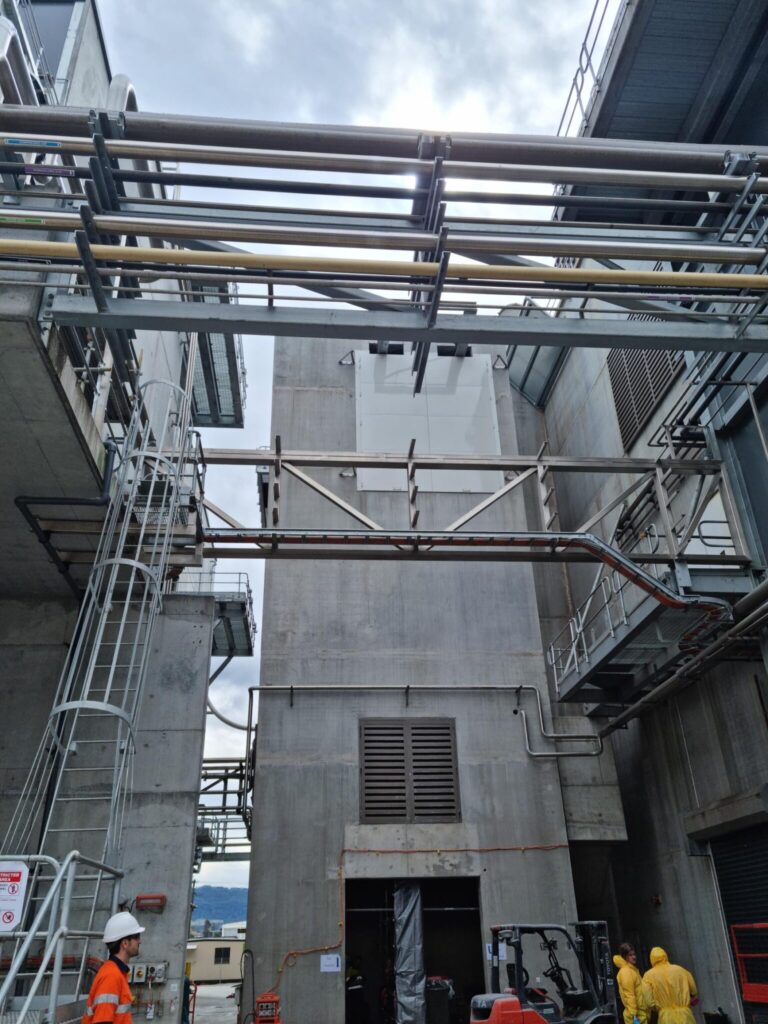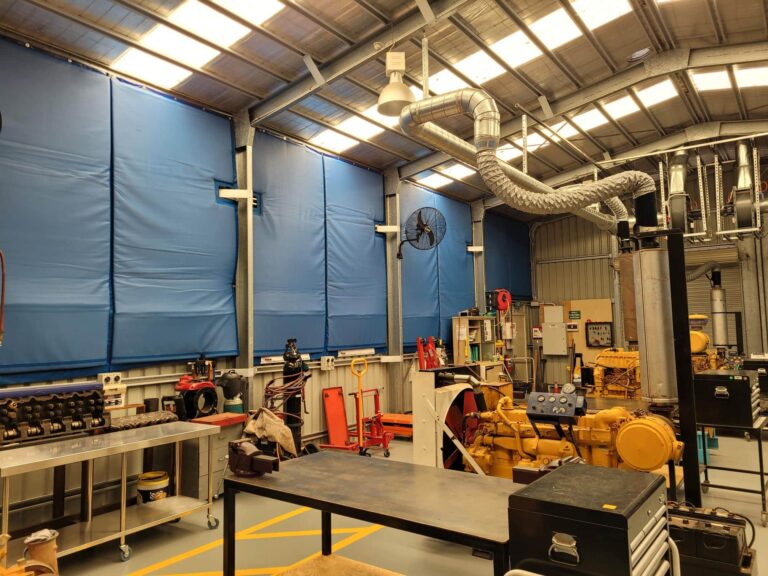The impact of noise reduction on manufacturing employees
Some surprising consequences for health and productivity Excessive noise levels pose a significant health hazard in the manufacturing industry, leading to irreversible hearing damage and various other health problems. And the impact of noise extends beyond physical health, affecting employees’ wellbeing, productivity, and job satisfaction. In this article, we’ll explore the surprising benefits of noise…
Some surprising consequences for health and productivity
Excessive noise levels pose a significant health hazard in the manufacturing industry, leading to irreversible hearing damage and various other health problems. And the impact of noise extends beyond physical health, affecting employees’ wellbeing, productivity, and job satisfaction.
In this article, we’ll explore the surprising benefits of noise reduction in the workplace, and highlight its positive effects on employee health, safety, quality control, and overall company success.
The many detrimental effects of noise on employee health
Noise in the manufacturing industry can have detrimental effects on employees’ physical, psychological, and emotional well-being. Exposure to high noise levels can result in migraines, fatigue, irritability, dizziness, and even high blood pressure.
What’s more, hearing loss – a permanent problem caused by loud noise – negatively impacts individuals’ quality of life well beyond the workplace. By implementing noise reduction measures, employers can not only prevent these health issues, but also promote employee wellbeing and job satisfaction.
The advantages of noise reduction for the manufacturing industry
Beyond improving employee health, reducing noise levels in the workplace offers several advantages that positively impact the entire manufacturing company.
1) Improved productivity
A quieter work environment minimises distractions, allowing employees to focus better and complete tasks more efficiently. Increased productivity leads to better outcomes and enhanced overall job satisfaction
2) Fewer workplace accidents
High noise levels contribute to fatigue and stress, factors which can increase the risk of workplace accidents. By reducing noise distractions, employees can better maintain their focus, reducing the likelihood of accidents and promoting a safer work environment.
3) Enhanced quality control
Excessive noise can hinder employee communication, impacting the ability to monitor and maintain product quality. With fewer noise-related distractions, inspections can be carried out more accurately and consistently, resulting in improved quality control.
4) Improved employee retention
Prioritising employee health and safety demonstrates the company’s commitment to their wellbeing. By implementing noise reduction measures, employers show they care about their employees’ health and are more likely to retain a satisfied, engaged workforce – which ultimately leads to increased productivity and reduced turnover costs.
Avoiding the costs of Noise-Induced Hearing Loss (NIHL) for workers and employers
Manufacturing environments often involve multiple noisy machines operating simultaneously, a situation which increases the risk of noise-induced hearing loss (NIHL) for workers.
NIHL has significant consequences for both employees and business owners. Workers may experience job loss, reduced earnings, impaired social life, and increased health-related issues. For employers, NIHL can result in higher workers’ compensation premiums, increased replacement and training costs, and decreased productivity
Fortunately, there are steps you can take to avoid the damaging effects of NIHL.
Determining acceptable noise levels in manufacturing
The acceptable level of noise exposure depends on the loudness of the noise, and an employee’s duration of exposure. It is crucial to limit maximum worker noise exposure to 85 dB(A) over eight hours or peak (sudden loud) noises to 140 dB(A).
Noise control solutions for the manufacturing industry
Implementing noise control solutions can significantly mitigate the negative effects of noise in manufacturing facilities. Effective solutions include:
- Welding and grinding bays: Dedicated areas equipped with noise-reducing measures for fabrication and maintenance processes.
- Dust control and splash control solutions: Measures that can reduce noise from bulk materials handling, cutting processes, saws, grinders, and creating dust-free zones and washdown areas.
- Custom-made acoustic enclosures: Specially designed enclosures or partial enclosure solutions that reduce noise generated by noisy machines in factories and processing facilities.
Get advice on industrial noise control for your site
While the primary focus on noise reduction in manufacturing has been driven by safety concerns, the benefits extend far beyond employee wellbeing. By investing in noise reduction strategies, manufacturing companies can improve employee health, safety, and job satisfaction, leading to increased productivity, better quality control, and enhanced employee retention. Reducing noise levels not only protects employees’ well-being but also contributes to the company’s bottom line and overall success.
For expert advice on the right noise control solutions for your facility, please contact Flexshield at 1300 799 969 or get in touch online.
Related Stories
-

The future of Australian manufacturing: exciting developments to anticipate
8 key advances set to shape the industry in 2025 As we enter the second month of 2025, the Australian manufacturing industry is poised for a transformative year. With advancements in technology, a growing… -

Managing noise in large-scale projects with acoustic solutions
Strategies for improving industrial workspaces through noise control In industrial environments, noise control is a critical factor due to the substantial noise produced by machinery and operations. Effective noise control solutions are instrumental in ensuring… -

A guide to quietening machinery and building community relations
Expert tips for navigating noise complaints Living in harmony with the local community is crucial for any business, which is why addressing noise complaints from neighbours is a common challenge. In this article, the Flexshield…